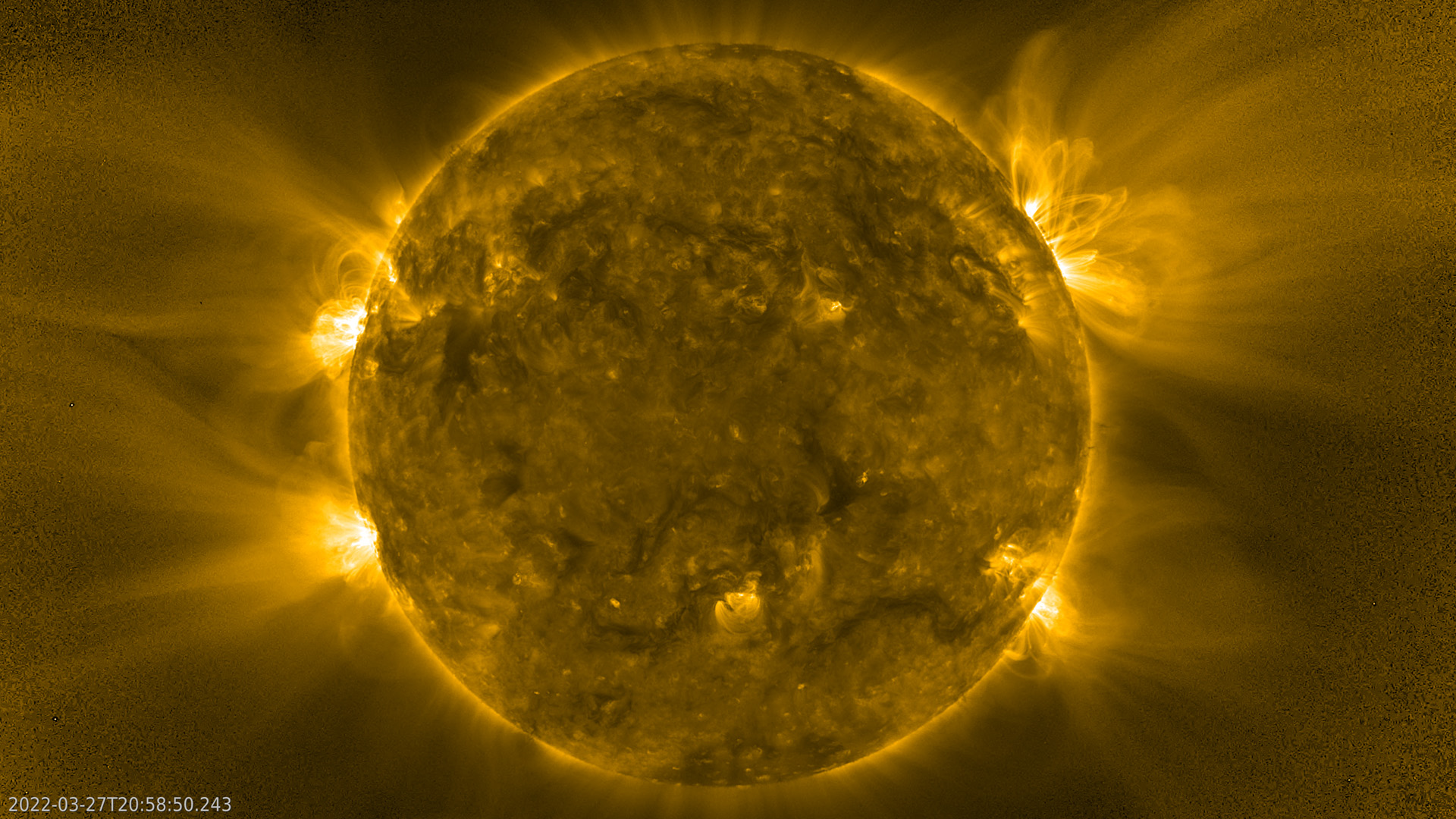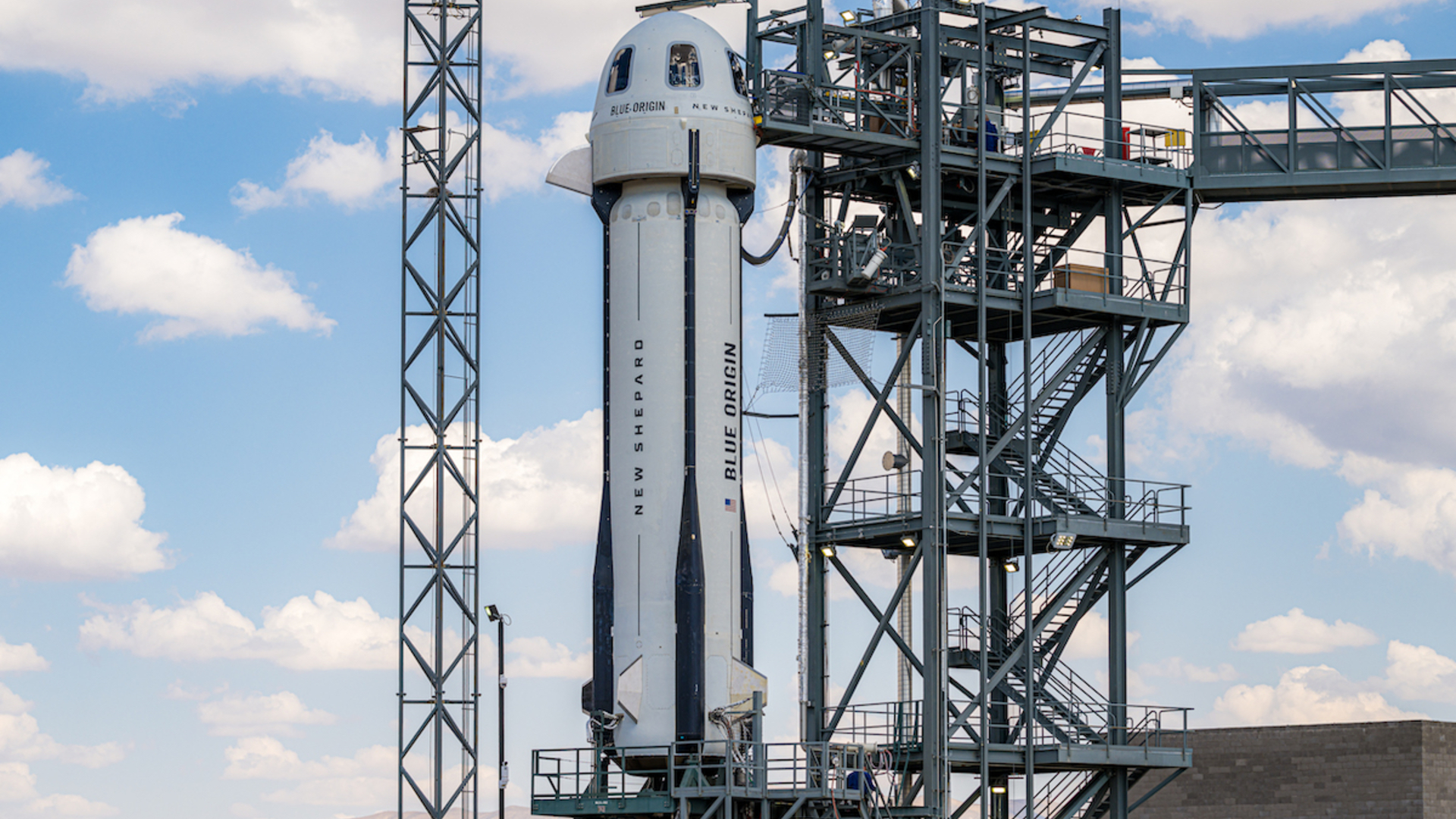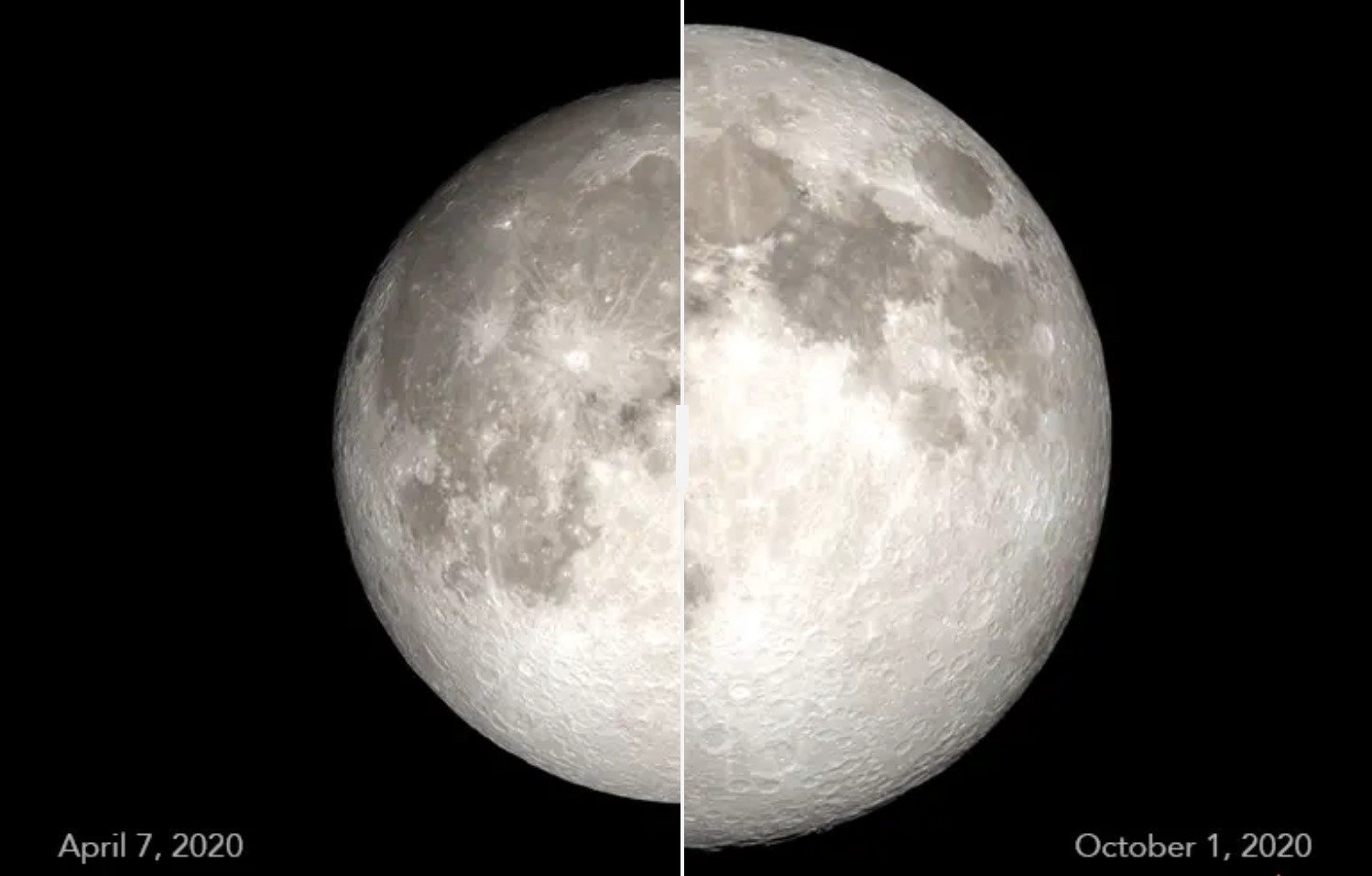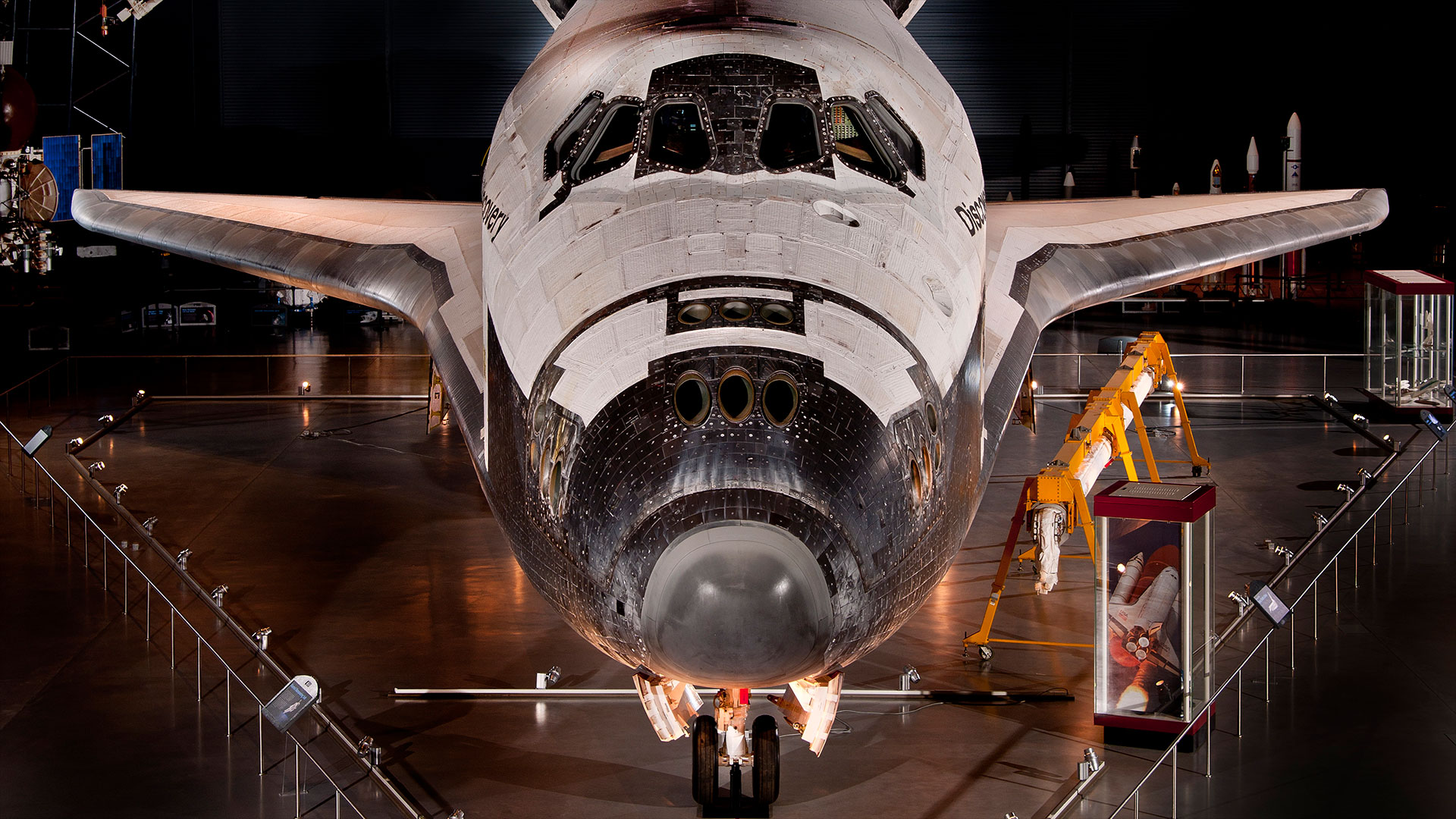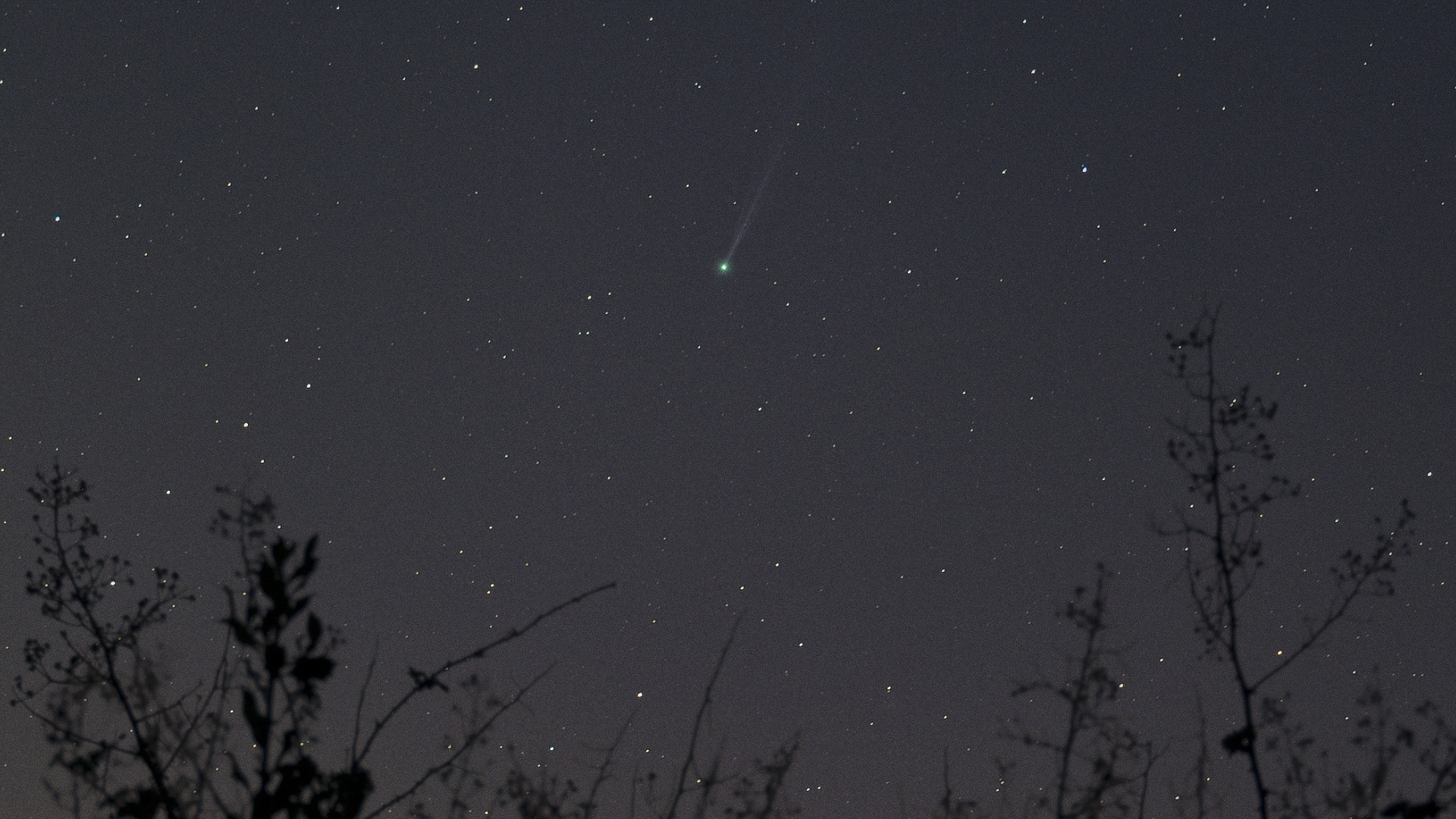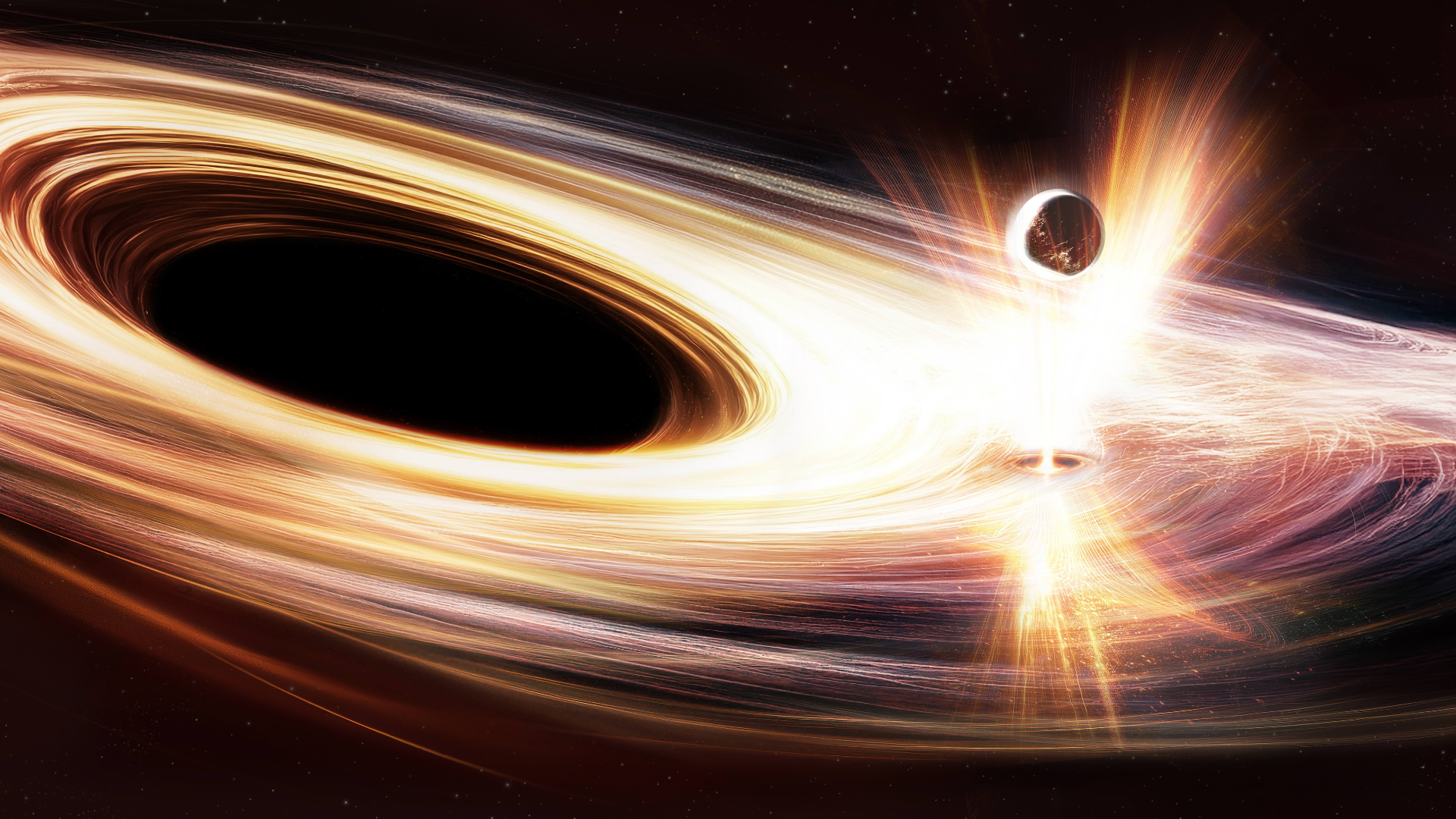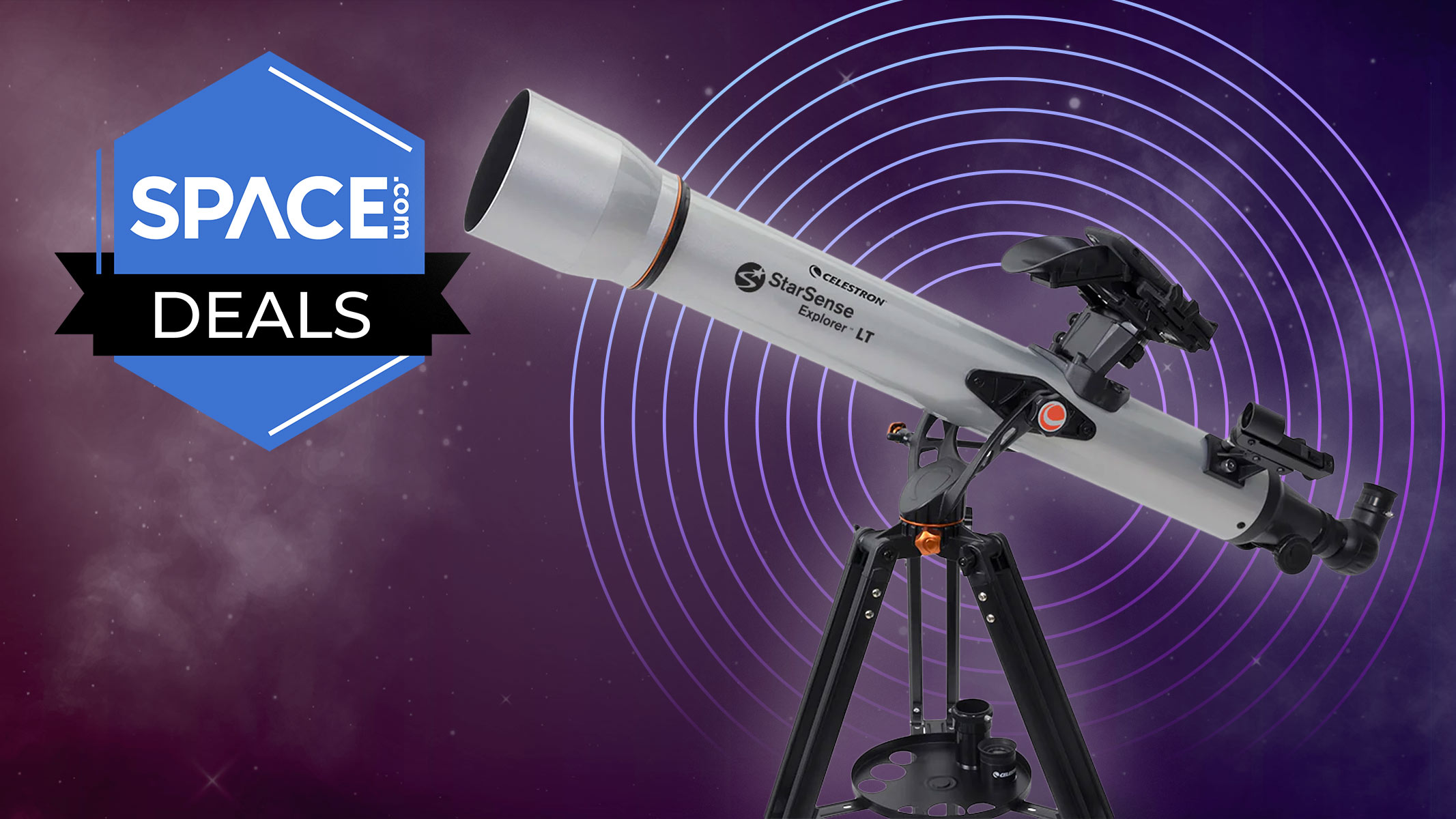Private Cygnus Spaceship Delivers NASA Cargo to Space Station
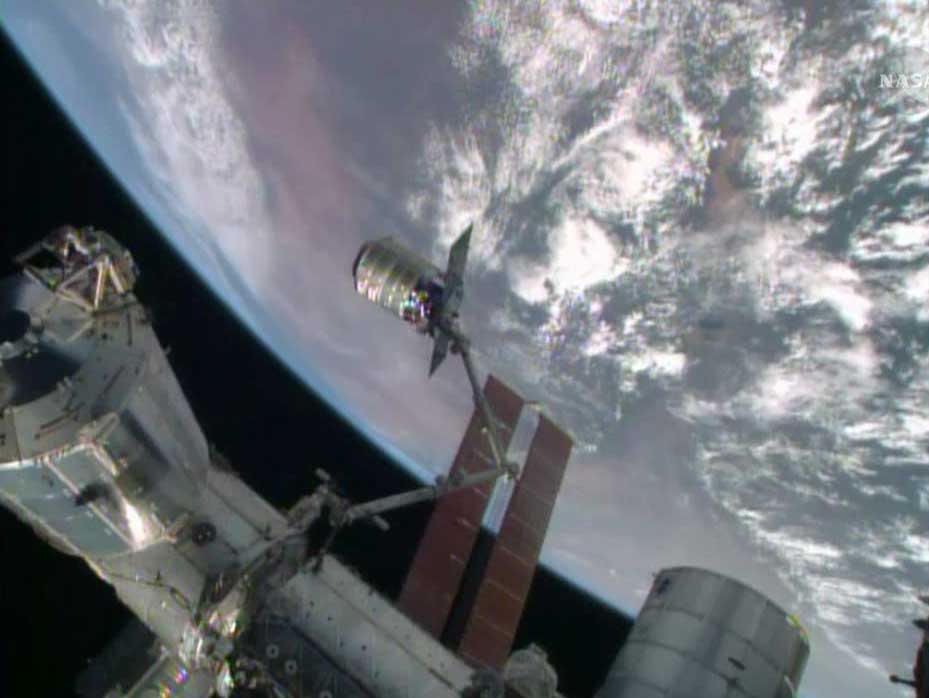
A commercial cargo ship built by Orbital Sciences Corporation arrived at the International Space Station on Wednesday (July 16) to deliver fresh food, supplies and other vital gear for NASA.
The unmanned Cygnus cargo ship was captured by astronauts using the station's robotic arm at 6:36 a.m. EDT (1036 GMT) as both spacecraft sailed over Libya at an altitude of 260 miles (418 kilometers). The capsule was attached to an open docking port about two hours later.
"We got it!" station astronaut Alexander Gerst of Germany exclaimed on Twitter, where he posted a photo of the Cygnus at the end of the station's arm.
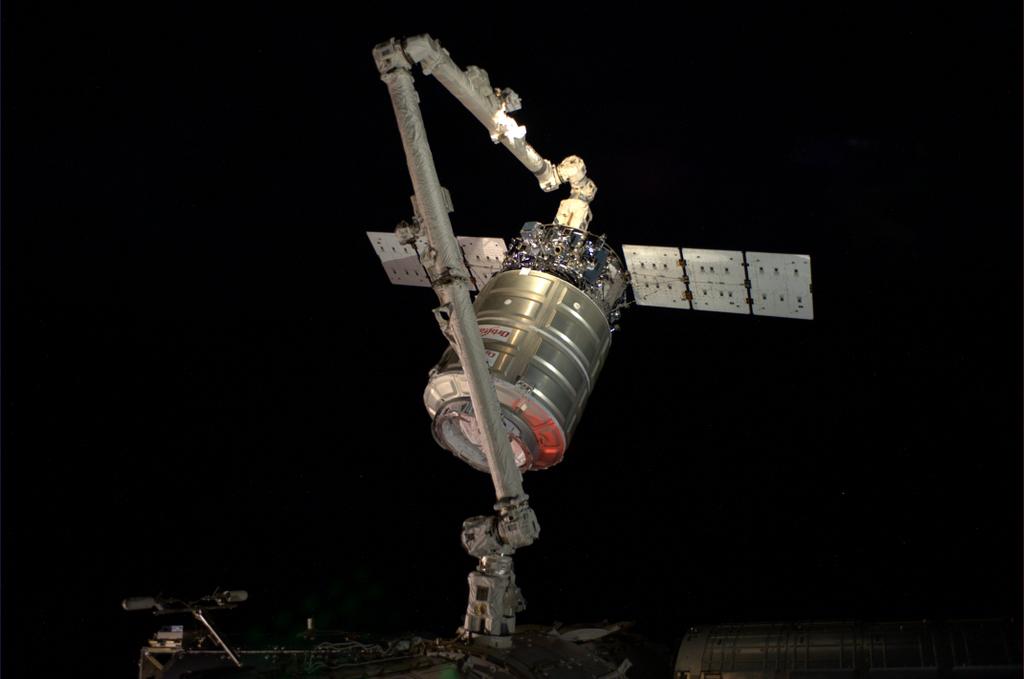
"Houston, Station … we now have a seventh crewmember," space station commander Steve Swanson of NASA radioed to Mission Control. "The SS Janice Voss is on space station."
Orbital Sciences named this Cygnus spacecraft in honor space shuttle astronaut Janice Voss, who died in 2012. Voss flew on five NASA shuttle missions, but never visited the space station during her astronaut career.
"It's great to see Cygnus on board and Janice as well," NASA astronaut Cady Coleman radioed back from Mission Control.
By coincidence, today's docking took place on the 45th anniversary of NASA's launch of the Apollo 11 moon landing mission. The station crew recorded a special video to commemorate launch on July 16, 1969.
Get the Space.com Newsletter
Breaking space news, the latest updates on rocket launches, skywatching events and more!
The Cygnus spacecraft is delivering more than 1.5 tons of supplies to the space station for NASA. The mission launched toward the orbiting lab on Sunday (July 13) atop an Orbital Sciences-built Antares rocket that lifted off from NASA's Wallops Flight Facility on Wallops Island, Virginia.
The mission is the second cargo delivery flight to the space station by Orbital Sciences. The company has a $1.9 billion deal with NASA to provide eight resupply missions to the station using its Cygnus capsules and Antares rockets. This current Cygnus mission, called Orb-2, is expected to last about one month. The space capsule will ultimately be filled with trash and released back into space to intentionally burn up in Earth's atmosphere.
Another company, Space Exploration Technologies (better known as SpaceX) of Hawthorne, California, has a $1.6 billion deal with NASA for 12 delivery missions using its own Dragon space capsules and Falcon 9 rockets. SpaceX has launched three of those cargo runs so far, most recently in April.
NASA is dependent on Orbital Sciences and SpaceX, as well as space station cargo ships provided by Europe, Russia and Japan, to keep the space station stocked with supplies. The next cargo ship to launch toward the space station will be a European Automated Transfer Vehicle, the ATV-5 Georges Lemaitre. That ATV-5 mission is expected to launch on July 24.
Since NASA's space shuttle fleet retired in 2011, the U.S. agency's only way to launch astronauts to the station has been aboard Russian Soyuz space capsules. NASA plans to use new private space taxis under development by several U.S. companies to ferry American astronauts to and from the station. The space agency expects those new space taxis to become available by 2017.
Email Tariq Malik at tmalik@space.com or follow him @tariqjmalik and Google+. Follow us @Spacedotcom, Facebook and Google+. Original story on Space.com.
Join our Space Forums to keep talking space on the latest missions, night sky and more! And if you have a news tip, correction or comment, let us know at: community@space.com.

Tariq is the Editor-in-Chief of Space.com and joined the team in 2001, first as an intern and staff writer, and later as an editor. He covers human spaceflight, exploration and space science, as well as skywatching and entertainment. He became Space.com's Managing Editor in 2009 and Editor-in-Chief in 2019. Before joining Space.com, Tariq was a staff reporter for The Los Angeles Times covering education and city beats in La Habra, Fullerton and Huntington Beach. In October 2022, Tariq received the Harry Kolcum Award for excellence in space reporting from the National Space Club Florida Committee. He is also an Eagle Scout (yes, he has the Space Exploration merit badge) and went to Space Camp four times as a kid and a fifth time as an adult. He has journalism degrees from the University of Southern California and New York University. You can find Tariq at Space.com and as the co-host to the This Week In Space podcast with space historian Rod Pyle on the TWiT network. To see his latest project, you can follow Tariq on Twitter @tariqjmalik.



